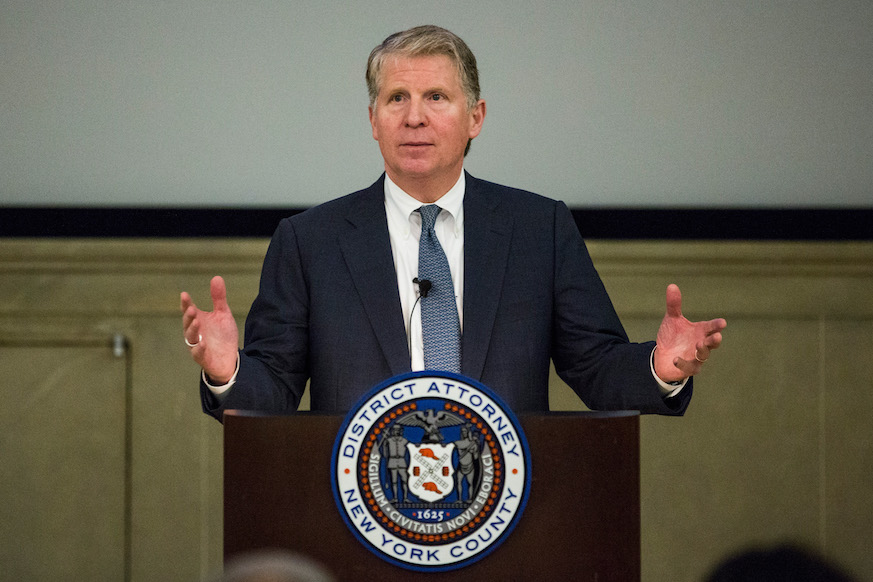In an effort to prevent wrongful arrests and prosecutions, Manhattan District Attorney Cyrus Vance is pushing to gain access to NYPD records, The New York Times reported.
Vance seeks to electronically access disciplinary records of NYPD officers as well as the department’s investigative reports that include detectives’ notes on evidence and witness and victim statements.
It is a level of accessibility that advocates have been requesting since July 2014, when the NYPD did not make public the disciplinary records of Officer Daniel Pantaleo, who put Eric Garner in a fatal chokehold, until ordered by a judge to do so.
“We are saying to the police, ‘You have a lot of information that could bear upon the credibility of witnesses, both civilian and police, and before we take away a person’s liberty based on that information, we would like to have everything,’” said Karen Friedman Agnifilo, DA Vance’s chief assistant.
The Manhattan DA’s office discovered the wrong person was arrested in at least 43 cases so far this year, she added.
NYPD officials thus far have denied Vance’s request, and the department for years would release disciplinary records only when a background check was requested from a prosecutor on a testifying officer, Lawrence Byrne, deputy police commissioner for legal affairs, told the Times.
However, the state Supreme Court determined that prosecutors do not need to access the personal records of officers until trial to access if there is enough evidence to warrant an arrest.
“Whether an officer was disciplined five years ago for making a bad stop has nothing to do with whether a defendant today murdered his mother,” Byrne said.
Prosecutors countered that nine out of 10 cases do not get to a hearing or trial as defendants, who are usually incarcerated, plead guilty before knowing the history of NYPD officers involved in the case. Additionally, defense lawyers said clients frequently decide on pleas with just vague information regarding witnesses.
As investigative reports could include information on confidential informants, undercover officers, unsolved cases and witnesses, the NYPD is “not treating prosecutors any differently than we are treating the FBI or the state police” by not granting them unrestricted access to departmental records, Byrne said.
“We would like access to this in a way that allows us to provide information not just to us but to the defense as well,” Friedman Agnifilo said. “Defense attorneys are with their clients trying to make decisions about whether or not to plead guilty.”



















